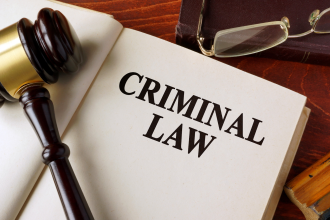Understanding the personal injury case timeline in Illinois helps accident victims know what to expect and make informed decisions throughout the legal process. This comprehensive guide breaks down each phase of a typical personal injury case, from the initial accident through final settlement or trial verdict.
- Phase 1: Immediate Response (Day of Accident – 72 Hours)
- Phase 2: Case Evaluation and Attorney Consultation (Days 1-14)
- Phase 3: Medical Treatment and Documentation (Weeks 2-26)
- Phase 4: Demand and Initial Settlement Negotiations (Months 4-8)
- Phase 5: Litigation Preparation (Months 6-12)
- Phase 6: Resolution (Months 12-24)
- Factors That Affect Timeline Duration
- How to Optimize Your Case Timeline
- Special Considerations for Illinois Cases
- Working with Noll Law Office: Our Timeline Approach
- Conclusion: Managing Expectations and Maximizing Results
Phase 1: Immediate Response (Day of Accident – 72 Hours)
Step 1: Accident Scene Management
Timeline: Immediate (0-2 hours after accident)
Critical Actions:
- Ensure medical safety for all parties
- Contact emergency services (911)
- Document accident scene with photos
- Gather witness contact information
- Exchange insurance information with other drivers
- Obtain police report number
Legal Significance: Evidence collected at the scene forms the foundation of your case. Illinois courts rely heavily on contemporaneous documentation.
Common Mistakes to Avoid:
- Admitting fault or speculating about causes
- Refusing medical attention when injured
- Failing to document vehicle positions and damage
- Not obtaining witness contact information
Step 2: Initial Medical Evaluation
Timeline: Within 24 hours of accident
Required Actions:
- Seek immediate medical attention for any injuries
- Follow all medical recommendations
- Request copies of all medical records
- Document all symptoms, even minor ones
Legal Impact: Delayed medical treatment can be used by insurance companies to argue that injuries weren’t serious or weren’t caused by the accident.
Illinois Law Consideration: Under Illinois law, the full extent of injuries must be known before settling a case. Early medical documentation is crucial.
Step 3: Insurance Notification
Timeline: Within 24-48 hours
Proper Procedure:
- Notify your insurance company of the accident
- Provide basic facts without detailed statements
- Avoid admitting fault or speculating about causes
- Request claim number and adjuster contact information
Legal Protection: Illinois requires prompt notification to your insurance company, but detailed statements should be avoided until you have legal representation.
Phase 2: Case Evaluation and Attorney Consultation (Days 1-14)
Step 4: Attorney Consultation and Retention
Timeline: Within 1-2 weeks of accident
Consultation Process:
- Research qualified personal injury attorneys
- Schedule consultations (most are free)
- Bring all accident-related documentation
- Discuss fee arrangements and case strategy
Selection Criteria for Illinois Cases:
- Experience with Illinois personal injury law
- Local court knowledge and relationships
- Trial experience and success record
- Resources for proper case investigation
Noll Law Office Advantage: Our Springfield-based team combines former prosecutors, medical litigation specialists, and experienced personal injury attorneys, providing comprehensive expertise for complex Illinois cases.
Step 5: Formal Case Investigation Begins
Timeline: Immediately upon attorney retention
Investigation Components:
- Accident scene examination and documentation
- Police report analysis and supplementation
- Witness interview and statement collection
- Vehicle inspection and damage assessment
- Medical record collection and review
Evidence Preservation Actions:
- Surveillance footage preservation letters
- Expert accident reconstruction if needed
- Photography of vehicles and accident scene
- Documentation of road conditions and signage
Time-Sensitive Elements: Many types of evidence deteriorate or disappear quickly. Illinois courts favor cases with thorough, immediate investigation.
Phase 3: Medical Treatment and Documentation (Weeks 2-26)
Step 6: Comprehensive Medical Treatment
Timeline: Ongoing throughout case (typically 3-6 months)
Treatment Documentation Requirements:
- Follow all medical recommendations consistently
- Attend all scheduled appointments
- Complete prescribed physical therapy
- Document daily pain and limitation impacts
Medical Provider Coordination:
- Ensure all providers understand accident causation
- Request detailed medical records and reports
- Obtain medical opinions on permanency and future needs
- Coordinate with medical experts for case support
Illinois Medical Documentation Standards: Illinois courts require clear medical evidence connecting injuries to the accident and establishing the extent of damages.
Step 7: Maximum Medical Improvement Determination
Timeline: 3-12 months post-accident (varies by injury type)
Medical Milestone Significance:
- Point where further improvement is unlikely
- Enables accurate future medical cost calculation
- Allows for permanent disability assessment
- Triggers serious settlement negotiations
Documentation Requirements:
- Final medical reports from all treating physicians
- Permanent impairment ratings if applicable
- Future medical care recommendations
- Vocational impact assessments for severe injuries
Phase 4: Demand and Initial Settlement Negotiations (Months 4-8)
Step 8: Settlement Demand Preparation
Timeline: After maximum medical improvement
Demand Package Components:
- Comprehensive medical record compilation
- Economic damage calculation (medical expenses, lost wages)
- Non-economic damage assessment (pain and suffering)
- Supporting documentation (photos, witness statements)
- Legal analysis of liability and damages
Illinois Damage Categories:
- Economic Damages: Medical expenses, lost wages, property damage
- Non-Economic Damages: Pain and suffering, emotional distress, loss of enjoyment
- Punitive Damages: Available in cases of willful or wanton conduct
Step 9: Insurance Company Response and Negotiation
Timeline: 30-90 days after demand submission
Typical Insurance Company Process:
- Initial demand review and investigation
- Independent medical examination requests
- Liability investigation and analysis
- Initial settlement offer presentation
Negotiation Strategies:
- Comprehensive response to insurance company questions
- Additional evidence presentation if needed
- Counter-offer preparation and presentation
- Multiple negotiation rounds if necessary
Noll Law Office Negotiation Advantage: Our experience with Springfield-area insurance companies and adjusters provides strategic advantages in settlement negotiations.
Phase 5: Litigation Preparation (Months 6-12)
Step 10: Lawsuit Filing Decision
Timeline: Before statute of limitations expires
Illinois Statute of Limitations:
- Personal Injury Cases: 2 years from accident date
- Wrongful Death Cases: 2 years from death date
- Property Damage: 5 years from accident date
- Municipal Liability: 1 year notice requirement
Lawsuit Filing Considerations:
- Settlement negotiation progress
- Strength of liability evidence
- Extent of damages and injuries
- Insurance company cooperation level
Step 11: Discovery Process
Timeline: 6-18 months after lawsuit filing
Discovery Components:
- Interrogatories: Written questions requiring sworn answers
- Document Requests: Production of relevant records and evidence
- Depositions: Sworn testimony from parties and witnesses
- Expert Witness Preparation: Medical and accident reconstruction experts
Illinois Discovery Rules:
- Mandatory disclosure requirements
- Specific timelines for responses
- Court supervision of discovery disputes
- Expert witness disclosure deadlines
Phase 6: Resolution (Months 12-24)
Step 12: Settlement or Trial
Timeline: 12-24 months from accident (varies significantly)
Settlement Resolution:
- Mediation: Neutral third-party facilitated negotiation
- Direct Negotiation: Attorney-to-attorney settlement discussions
- Settlement Documentation: Release agreements and payment arrangements
Trial Resolution:
- Jury Selection: Choosing impartial jurors
- Opening Statements: Case presentation overview
- Evidence Presentation: Witness testimony and exhibits
- Closing Arguments: Final persuasion attempts
- Jury Deliberation: Verdict determination
- Post-Trial Motions: Appeals or judgment modifications
Factors That Affect Timeline Duration
Case Complexity Factors
Simple Cases (6-12 months):
- Clear liability
- Minor to moderate injuries
- Cooperative insurance companies
- Straightforward medical treatment
Complex Cases (18-36 months):
- Disputed liability
- Severe or permanent injuries
- Multiple parties or insurance companies
- Complicated medical issues
External Factors
Court Scheduling: Illinois court calendars vary by county Insurance Company Cooperation: Some companies negotiate more readily Medical Treatment Duration: Complex injuries require longer treatment Expert Witness Availability: Scheduling can affect timeline
How to Optimize Your Case Timeline
Client Actions That Speed Resolution
- Prompt Medical Treatment: Follow all medical recommendations
- Complete Documentation: Maintain detailed records
- Attorney Cooperation: Respond quickly to attorney requests
- Realistic Expectations: Understand fair settlement ranges
Attorney Actions That Maximize Efficiency
- Immediate Investigation: Preserve evidence quickly
- Medical Coordination: Work closely with treating physicians
- Strategic Negotiation: Know when to settle and when to litigate
- Trial Preparation: Be ready for court if necessary
Special Considerations for Illinois Cases
Comparative Negligence
Illinois follows a modified comparative negligence rule:
- Damages reduced by plaintiff’s percentage of fault
- No recovery if plaintiff is 51% or more at fault
- Affects settlement negotiations and trial strategy
Dram Shop Liability
Illinois dram shop laws can extend liability to alcohol vendors:
- Additional defendants and insurance coverage
- Specialized investigation requirements
- Extended timeline for comprehensive investigation
Municipal Liability
Claims against government entities have special requirements:
- One-year notice requirement
- Specific procedural compliance
- Different immunity and liability rules
Working with Noll Law Office: Our Timeline Approach
At Noll Law Office in Springfield, our systematic approach to case timelines includes:
Immediate Response Protocol
- 24-hour evidence preservation initiation
- Immediate medical coordination
- Prompt insurance company communication
Efficient Investigation Process
- Former prosecutor experience for criminal law aspects
- Medical litigation expertise for complex injuries
- Local relationships for faster evidence gathering
Strategic Settlement Timing
- Understanding of when to settle versus litigate
- Knowledge of insurance company practices
- Trial readiness that encourages fair settlements
Client Communication
- Regular timeline updates and expectations management
- Clear explanation of each phase and requirements
- Prompt response to client questions and concerns
Conclusion: Managing Expectations and Maximizing Results
Understanding the personal injury case timeline in Illinois helps you make informed decisions and set realistic expectations. While every case is unique, following this 12-step process ensures that your case progresses efficiently toward the best possible outcome.
The key to a successful personal injury case isn’t just following the timeline—it’s having experienced attorneys who know how to navigate each phase effectively. At Noll Law Office, our comprehensive approach to Illinois personal injury cases combines legal expertise, medical knowledge, and local experience to maximize compensation while minimizing delays.
If you’ve been injured in an accident in Springfield or Central Illinois, don’t let time work against you. Contact Noll Law Office at 217.414.8889 for a free consultation to discuss your case timeline and legal options. Our experienced team will guide you through each step of the process, ensuring that your rights are protected and your compensation is maximized.
Important Legal Disclaimers:
- This timeline is for general informational purposes only
- Every case is unique and may not follow this exact timeline
- Illinois law is complex and changes over time
- This article does not constitute legal advice
- Consult with a qualified Illinois attorney for case-specific guidance
- Past results do not guarantee future outcomes
Emergency Legal Situations: If you’re approaching any legal deadline or facing immediate legal pressure, contact an attorney immediately. Some legal rights can be lost forever if not exercised within specific timeframes.













